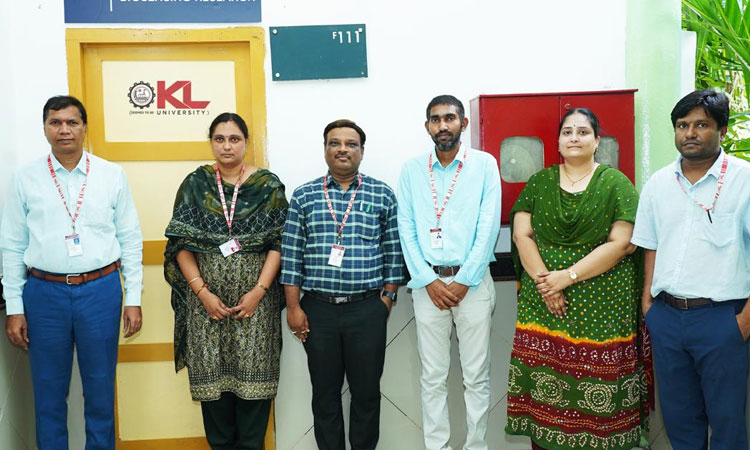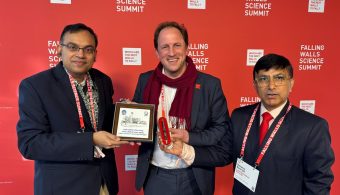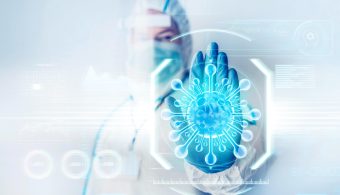In a significant stride for Indo-German scientific collaboration, a chemistry faculty member from Andhra Pradesh’s Koneru Lakshmaiah Education Foundation (KLEF) is helping develop a low-cost, portable biosensor aimed at detecting sepsis in its early stages—a breakthrough that could save countless lives in emergency settings.
Global Collaboration Targets a Global Threat
Dr. T. Anusha, Assistant Professor in the Department of Chemistry at KLEF Deemed to be University, is partnering with Dr. Parvaneh Rahimi of TU Bergakademie Freiberg, Germany, on a joint research project funded by the Indo-German Science and Technology Centre (IGSTC). Their mission: to create an advanced electrochemical biosensor platform capable of detecting multiple biomarkers of sepsis simultaneously.
Sepsis, a potentially fatal condition triggered by the body’s overwhelming response to infection, requires immediate diagnosis and intervention. The collaborative project titled “Development of an Electrochemical Biosensing Platform for Multiplexed Simultaneous Detection of Sepsis Biomarkers” aims to make this possible through rapid diagnostics.
Faster Diagnosis, Greater Impact
The research is focused on designing a compact diagnostic tool that can deliver results within minutes using just a small blood sample. The biosensor’s affordability and portability are central to its innovation, especially for use in emergency rooms, ICUs, and rural clinics with limited infrastructure.
“This biosensor has the potential to significantly shorten diagnosis time, allowing for quicker treatment decisions and, ultimately, saving more lives,” explained Dr. Anusha, highlighting the real-world urgency behind the research.
Reaching the Unreached: From ICUs to Rural Clinics
Once developed, the technology is expected to benefit a wide demographic. Hospitals, diagnostic labs, and point-of-care providers in both urban and remote regions will be able to access faster, cost-effective alternatives to traditional testing methods. The biosensor is also anticipated to assist healthcare providers in developing nations where access to advanced diagnostic tools remains limited.
Startups and biomedical device manufacturers are also likely to benefit, as the technology encourages innovation in affordable medical diagnostics and opens up opportunities for commercial-scale production.
Prototype and International Exchange on the Horizon
A major milestone in the project is the creation of a working prototype that can be tested and refined for clinical use. In August 2025, Dr. Anusha will travel to Germany to collaborate closely with Dr. Rahimi and her team at TU Bergakademie Freiberg. The visit will focus on strengthening the technical aspects of the biosensor and exploring avenues for scaling up development.
KLEF Celebrates Research Excellence
Lauding the achievement, Er. Koneru Lakshman Havish, Vice President of KLEF Deemed to be University, emphasized the institution’s commitment to global research collaboration.
“We’re proud of this international partnership and its potential to transform healthcare,” he said. “At KLEF, we prioritize research excellence, academic rigor, and meaningful innovation that creates real-world impact.”
A Leap Forward for Indian Research
The Department of Chemistry at KLEF continues to make strides in interdisciplinary research, particularly in healthcare and diagnostics. This collaboration marks another milestone for the institution, strengthening India’s position in global scientific innovation and offering a powerful example of how international cooperation can address pressing medical challenges.



